Published in June 2020 in Camas, the literary magazine of the University of Montana in Missoula
“I hope you’re not going to stop,” Carol demanded.
Ahead of them, where the dirt road met the pavement, were two 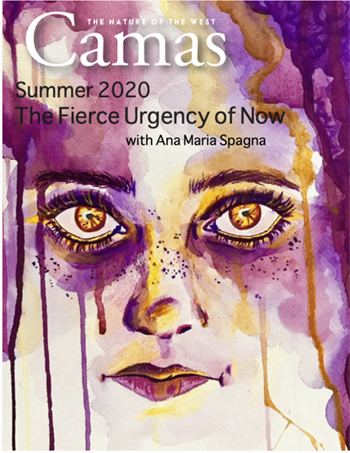 disheveled figures. Hitchhikers, apparently; a red pickup truck that had let them out was almost out of sight, headed east toward Nevada.
disheveled figures. Hitchhikers, apparently; a red pickup truck that had let them out was almost out of sight, headed east toward Nevada.
“Just to ask,” Henry said placatingly. At seven thousand feet, Cedar Flats was high enough to be cold on even a summer night. “It will be dark soon.”
“You suppose they’re headed to the bristlecones?” Millie asked from the back seat.
“That’s a long way,” said her brother. “How many miles is it, Dad?”
“Millie, Carl, just stay out of it, please,” their mother said without turning her head. “It’s none of our business.”
“About ten miles,” Henry said. “And four thousand feet higher.”
“They’ll never make it tonight,” said Carl.
“Carl.” Carol frowned over her shoulder. “Enough.”
But Henry was already slowing. They were a man and a woman. He pulled alongside and rolled down his window. “You all right, folks?”
“Just headed up to see the pines. Thank you for asking, bub.” The man’s gray hair sprawled from a blue knit watch cap into an equally untamed beard. He appeared to wear two pairs of trousers, the second visible through worn patches, and at least two jackets, perhaps Army surplus. The woman, white hair stuffed into a shapeless gray fedora, seemed to wear several jackets, too, and two or three long skirts. They were as lumpy as Michelin men. Both wore faded lace-up boots.
“It’s a good piece up,” Henry said. “Farther than you can walk before dark.”
“Not a problem,” the woman said. “We’re used to sleeping outdoors.” She looked up. Brushed with jet contrails, the sky was pale but cloudless. On the horizon, across the Owens Valley, the High Sierra glacier fields were fading to blue. “It ain’t going to rain.” She looked old enough to be his grandmother.
Millie rolled down her window. “You don’t have a tent or bedroll or anything.”
“No, missie, we don’t need one,” the man said.
Carl leaned over his sister. “You don’t even have very big knapsacks.”
“Thanks, sonny. We’re come a long way like this,” the woman said.
“Enough, Henry,” Carol muttered. “We’ll be late for drinks and dinner.” She stared deliberately out her window at the Sierra skyline.
“How far have you come, then?” Henry asked the man.
“We’re from New York. Got one of those see-America bus tickets.”
“No, I meant today. Where from today?”
“Manzanar,” the woman said. “Where they kept the Japanese.”
“We stopped there,” Millie broke in from the back seat again. “They interned them, during the World War.”
“Imprisoned ’em. We found a place to sleep in what used to be a barracks.”
“The tourist center people let you?” Henry asked.
“No one bothered us.”
“That’s forty miles. Outside Lone Pine. Down near Mount Whitney.”
“There wasn’t a bus until noon,” the man said. “But we stopped at a grocery to get some grub for breakfast, and a fellow brought us to Big Pine. Thumbed a ride up from there.” He wagged his head in the direction of the disappeared red pickup.
“We want to see them Bristlecone Pines,” the woman said. “One called Methuselah.”
“Exactly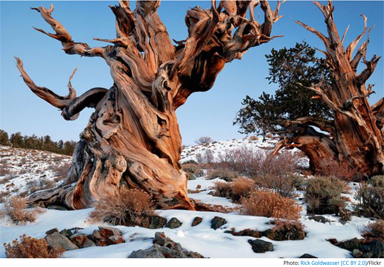 .” Carl leaned over his sister again. “We’ve just been up there. That one’s almost five thousand years old.”
.” Carl leaned over his sister again. “We’ve just been up there. That one’s almost five thousand years old.”
“Older even than us,” she joked.
Carl and Millie laughed appreciatively. Carol turned to scowl at them. “Enough, I said.”
“The point is,” Henry said to the man, “it’s a long way. Steep road up. It’s taken us a half-hour in the car, coming down.”
“It’ll be cold,” Millie added. “There aren’t any motels or anything.”
“Can’t afford motels anyway, missie,” the woman said. “Just a little shelter under a tree is enough.”
The sagebrush mesa was thinly populated with piñon pines and junipers, as short and squat as tall shrubs. “I’m not sure you can get under any of those,” Henry said.
“We’re expected in Big Pine, Henry.” Carol turned to face him, obviously to be sure they heard.
“Aw, Mom!” the kids groaned.
“Only by the motelkeeper,” Henry muttered at her.
“That’s all right, bub. You go along. We’re all right.”
“There’s a park entrance booth a little way back.” Carl leaned over to Millie’s window again. “Nobody’s there, but there’s a little roof.
“That will do us fine,” the woman said. “Thank you, sonny.” She turned to Henry’s window. “Thanks for stopping, sir. You go along now.”
“Good luck.” Henry rolled the window up and pulled out onto the highway.
“That was exciting, Dad,” Millie said. “Who do you suppose they are?”
“Probably criminals,” Carol said.
“I don’t think so, Mom,” Carl said. “They said they’re from New York. They look like homeless people.”
“A distinction without a difference.”
“I’ll bet they sleep on those steam grates,” Millie said. “We talked about them in social studies.” She was in ninth grade, her brother in eighth.
“You see, Henry?” Carol said, as though the children were backseat furniture. “You insist on getting them into your ‘magnet school’ with diversity and all that, and they get fed a diet of progressive pap.”
“Please, Carol,” Henry said. The road now pitched steeply down through a narrow, winding canyon; he kept his eyes attentively straight ahead.
“Maybe we could come back up in the morning and give them a ride,” Millie said.
“We will do absolutely nothing of the kind,” Carol said. “There isn’t room in the car, for one thing. They must smell, for another. And they’d probably rob you. Now drop it.”
They drove in silence the rest of the way to Big Pine. As on the first night at LAX and last night in Lone Pine, they would be in a single large room with pull-out sofa beds for the kids. Henry had planned the trip, a tour of the West’s parks, panoramas and places of history. Carol had insisted on managing the accommodations. He’d didn’t realize until the first night that she hadn’t booked separate rooms for Millie and Carl.
“They can’t share a room at their age. They’re teens,” she’d said. “Two more rooms would cost a fortune.”
“We can afford it. You were ready to send them to private school, for God’s sake. Give them more privacy, and us, too.” He had hoped romantic vistas might inspire love-making, although he wasn’t sure there was enough love left to be inspired.
“So they could come and go all night? Explore the temptations of places we know nothing about?”
“Carol, they’re good kids. You have to trust kids. That’s how they grow up.”
“She’s fourteen. Puberty. Raging hormones and all that.”
“You think I don’t know about adolescence?” He was vice principal of a junior-senior high school back in Connecticut.
“Not as much as you think. And Carl’s only a year younger. We’ll keep an eye on them, thank you very much.”
Considering how little adult passion she shared with him, he marveled at her fixation on impulsive juvenile ardor. After a few months of what he’d thought marital bliss, she’d apparently concluded that sex was mostly a necessary step toward procreation. That once accomplished, her interest became no more than dutiful. In picking motels for this trip, she had insisted on king-size beds like theirs at home. Minimizing any risk of stimulated flesh, Henry thought.
At the motel, they had to take turns in the bathroom before going to dinner. “Dad,” Millie said while Carol was thus occupied, “Mom always sleeps late. If Carl and I can get up early, can we go back up to see how they made out?”
“Sure,” he whispered. “First one up wakes the others. No lights; dress quietly.”
*
As predicted, Carol didn’t stir; they were on their way by 5:30. “Dad,” Millie said, looking back as they snaked up Westgard Pass. “The Sierras are pink.”
“It’s called Alpine glow.” Just ahead was an historic toll-booth site; Henry stopped to give the kids a good look at the dawn light. He imagined opening a picture-window curtain to display the mountain glory, wakening Carol to snuggle and savor it. He brushed the thought aside. “It will be gone by the time we get up to where those folks are.”
By the time they reached the park entrance, the pinkness in the peaks had indeed faded. A nascent sun slanted across Cedar Flats, casting long flat shadows behind the piñons and junipers. The woman was still curled up like a pile of flour sacks under the overhang. The man was several yards nearer them, brushing his teeth with a canteen and folding cup. He spat and turned a gap-toothed smile at them. “Why, good morning, bub. Didn’t expect to see you again.”
“We didn’t mean to intrude,” Millie said. “We came to give you a ride up to the bristlecones.”
“That’s thoughtful. Give us a minute to get organized.” He walked back to the shed, and got down on his knees to kiss the woman. Henry felt he ought to look away from their intimacy, but couldn’t. She started; he put his arms around her and whispered in her ear. A tender moment. With obvious difficulty he got back to his feet, and gave her a hand up.
She nodded to them, mouthed “good morning,” took the canteen and toothbrush and disappeared behind a bushy piñon. She was back in a few minutes, tugging her skirts straight while the man stuffed a few things into their little knapsacks.
Henry leaned out the window as he popped the trunk. “Why don’t you put those in back? There’s not a lot of space inside.”
Millie was already out of the car to help the man. “You take the front seat,” she said.
“Thank you, but that’s not right.”
“No,” she insisted, “we saw it all yesterday.” She and Carl made room for the woman to squeeze into the back with them. The man held the door for her, and closed it gently.
“Thank you,” the woman said. “I’m Daphne. He’s Apollo.” She giggled. “Daphne’s my real name. We looked it up at the New York Public Library one bitter cold winter day, and decided to change his name from George to Apollo. He’s been that ever since.”
Henry couldn’t remember how much ancient mythology the kids had learned yet; he glanced in the mirror. Millie had gotten it. “Then we’ll call this his sun chariot,” she laughed. “I’m Millie, and this is my brother Carl, and our Dad is Henry.”
“Glad to meet you,” Daphne said.
Apollo half-turned from the front seat to offer handshakes. Turning back, he waved a high-five hand at Henry. “You keep your hands on the reins, bub.”
The road was as slow as Henry remembered from yesterday, switchbacking upward through a thin montane forest that became even sparser as they climbed. Nearing the ridge, they began seeing the naked craggy bristlecones, as stark as skeletons. He stopped, as they had yesterday, at the place marked Sierra View Overlook. Apollo heaved himself out to open the door for Daphne.
“Oh, my!” she said, looking across the Owens Valley at the snowcapped peaks. She reached for Apollo’s hand.
“That’s Mount Whitney,” Millie said, pointing south. “Forty miles away. We looked at a map yesterday.”
“That’s where we were night before last,” Apollo said. “We’re trying to see all the important places in the West.”
“This is the best,” said Daphne. “Absolutely the best. I’ll bet we’re seeing a hundred miles up and down that mountain range. I wish I had a picture.”
“I’ll take one,” Carl said. They’d taken most photos so far with Carol’s sophisticated camera, but Carl had a point-and-shoot in the car. “Sit on the stone bench,” he said as he came back. Henry watched approvingly as his son politely posed the two against the chain of peaks. Good kids. He was proud of them.
“Thank you,” Daphne said. They sat close together and aimed smiles at the camera. “Can you get Mount Whitney behind us? To remember where we were yesterday?”
Carl edged sideways to frame them. The smiles had not left their faces, but he said “Say cheese, please,” anyway, and clicked.
“Take another, please, sonny, with your daddy and sister in it with us,” Daphne said. Henry and Millie got behind them. “Aim it straight across the valley this time, please. I don’t think I’ve ever seen a glacier.”
Carl cheesed them and clicked again. “We’ll send you prints when we get home. “Can you write your address in my journal?” He set the camera down on a boulder and went to the car, coming back with the leatherbound diary Henry had bought for the trip.
Apollo let him open to the right place and then set the diary on his knee to write. “Apollo and Daphne Jones,” he said as he wrote. “Just a post office box.” He handed the pen and diary back. “Thank you, sonny. I mean, Carl.”
“Carl and Millie and Henry,” Daphne said. “You’ve been very kind. Everyone has. So far, people have taken our picture in Las Vegas, where we began, and Death Valley and down there at the Japanese camp. I hope we’ll have a lot waiting for us when we get home.”
They started to get back in the car. “Wait,” Apollo said. He pointed to a sign at the edge of the parking lot: Ancient Bristlecone Pine Forest Visitor Center, ½ Mile. “I guess we’ll walk from here,” he said, backing out. “Take in the view. You’d best get back to your missus. I’ll bet she’s having a conniption fit.”
Henry shrugged, and got out to join the kids in farewell high-fives from Apollo and hugs from Daphne. “Thank you, thank you,” she said. “You enjoy the rest of your vacation. I know we will.” They stood holding hands as Henry backed the car around to start down.
He looked in the rear view mirror just before a bend in the road ahead would take them out of view. They were both waving vigorously. “Open your windows, kids, and give them a big wave back.” He waved, too, and then they were gone.
“Those are nice people, Dad,” Carl said.
“Did you see how they held hands while Carl took their picture?” said Millie. “And they didn’t smell at all.”
*
Carol was in the coffee shop. “I found your note, Henry. ‘Going for a hike,’ it said.”
“Sort of. I hoped you’d see the note. Didn’t want you to worry.”
“Hike, schmike. I know exactly where you’ve been. You’re lucky to be back alive.”
“It was fun, Mom,” Millie said. “They were nice.”
“I took their picture,” Carl said, “and they gave me a post office box address to I can mail them a copy.”
“Hmmph. Order yourself some breakfast.” She held her cup up to get the waitress’ attention. ”I’ll have another cup, thank you.”
The AAA TripTik said it was only an hour and half from Big Pine to Mono Lake, but they took longer. The highway up the valley paralleled the ridge; Bishop appeared to be almost at the foot of the spot where they’d left Daphne and Apollo. “How about we stop for a few minutes?” Henry suggested. “The map says there’s a little airport east of town. We might be able to see the Bristlecone Forest.”
“That’s the Ancient Bristlecone Forest, Dad,” Millie corrected him. “Let’s do it.”
“Neat,” said Carl. “I can take a picture from down here to match the one I took up there.”
“If we must,” said Carol.
The airport was little more than a paved landing strip in the midst of sagebrush flats, but there was an unimpeded view up to the mountain chain. Carol sat in the car while Henry and the kids got out, taking the binoculars, to peer up.
“It’s pretty far,” Carl said. “I can only imagine I’m seeing bristlecones.”
“Too bad we don’t have a spotting scope like the one in science class,” Millie said. “Let me have a look.”
“I’ll take a picture anyway,” Carl said. He went back to the car.
“Are you going to be much longer?” Henry heard Carol ask.
“Just a minute more, Mom,” Carl said. “Funny, I can’t find my camera.”
Millie went back to help him rummage through the back seat, with no luck. Then she remembered. “You set it down on a rock up there, Carl, after you took the pictures. When you went to get your journal.”
“Damn!” said Carl.
“Watch your mouth, young man,” Carol said.
“Sorry, Mom. You’re right, sis. I’ll bet I never picked it up after that.”
“I told you,” Carol said. “Those vagrants stole it. You’re lucky they didn’t steal your wallet and car keys, Henry.”
“Wait a minute!” Millie said. “Remember how hard they waved this morning as we drove away? I’ll bet they’d found Carl’s camera.”
“Never mind,” Carl said. “It was a cheap one. And I have an address sticker on it. Maybe they’ll send it back.
“Wonderful,” Carol said. “So now they know where we live.”
“Carol,” Henry said, “please drop it.”
“They’ll know anyway, Mom,” Millie said. “We got their address, so we could mail them prints, remember?”
“They live near Grand Central Station,” Carl said. “They have a post office box there.”
“Anyway,” Henry said, “it wasn’t an expensive camera. We’ll buy another in Bishop.”
“Thanks, Dad. Meantime, Mom, can you take a picture with your good camera?”
“From here? There’s not much to see except a shapeless mountain. I can’t see any trees at all up on top.”
“That’s okay. You can take a picture of us with the mountains behind us.”
“Oh, all right.” They posed, arms around each other. Carol snapped a photo. “Okay, let’s get started.”
“You took it already?” Carl asked. “We weren’t smiling. Take another.”
“Take another, please,” she said.
“Please. And tell us to say ‘cheese’ this time, please.”
It was only ten minutes back into Bishop, through a few blocks of single-story houses with horse trailers in the yards to a long main street of shops, none taller than two stories. Henry found what looked like a general store for tourists, and they went in to buy Carl a new camera. Carol stayed in the car.
“It’s just desert,” she said as they got back on the highway headed north again. “Nothing but worthless sagebrush.”
“Cattle eat sagebrush,” Millie said. “And the mountains are spectacular.”
“All right. Very pretty.”
It was another hour to Mono Lake. “Let’s keep an eye peeled for Daphne and Apollo,” Millie said as they walked down to take pictures.
“Who?” Carol hadn’t heard the names until then.
“Our friends up at the bristlecones, Mom. That’s not his real name, but it’s hers.”
“Your friends? Wonderful.”
It never got much better. The kids marveled at the Tioga Pass, and Yosemite, and the broad fertile San Joaquin Valley. Henry stopped to let Carl take pictures; Carol took one now and then. Carl and Millie learned not to say they were looking for Daphne and Apollo, but Henry knew they were. The kids loved The Presidio, the Golden Gate Bridge and the redwoods. Henry saw them peering into the crowds of tourists, hoping to recognize a face. Carol made no secret of her relief when they boarded the airplane home from Portland.
*
Two weeks later the camera arrived by parcel post from New York City.
“Thank you,” said a penciled note. “We took a few more pictures. Hope you don’t mind.”
Carl took the camera to the drugstore and had all the photos printed: The family when they landed at Los Angeles, and at Manzanar, and then the old couple by themselves, the High Sierra behind them, and with Millie and Dad. And then more: The two of them in Yosemite with the Half Dome behind them; at the Golden Gate, Point Arena, Redwood National Park and a few others without place names.
“Isn’t that cute?” said Millie. “They’re holding hands in every picture.”
“They went almost everywhere we did,” Carl said. “Too bad we missed them.”
“But they saw the West,” Henry said. “I’m glad for them.”
“Me too,” said Millie. “They were awesome. I’ll write about them in school.
“You’re lucky they didn’t kill you and steal your fillings,” Carol said.
“Give me the picture of us together on the mountain,” Henry said. “I’ll find another magnet and put it with all the others on the fridge.”
“No,” said Carol. “You won’t.”
-End-

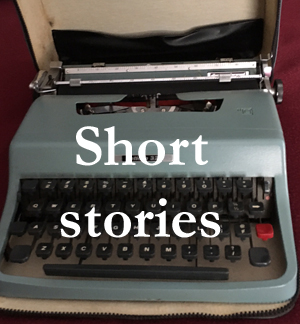
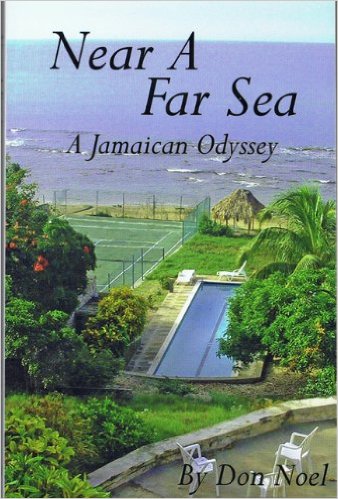
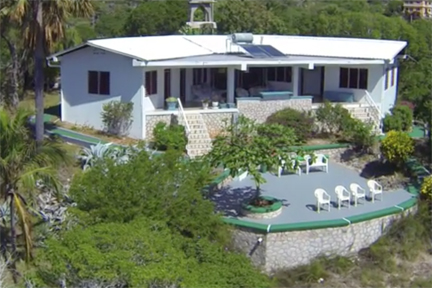
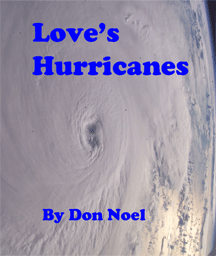

Great story! Reminiscent of our trip!
What a successful short story or tale! It was clever use of dialogue that caused me to want to take Carol and shake her foul mood out of her. The length of the ‘story’ was just enough:
you stopped just a the right place. Any longer and you would have had to write a book.
Thanks!
KATHY C.